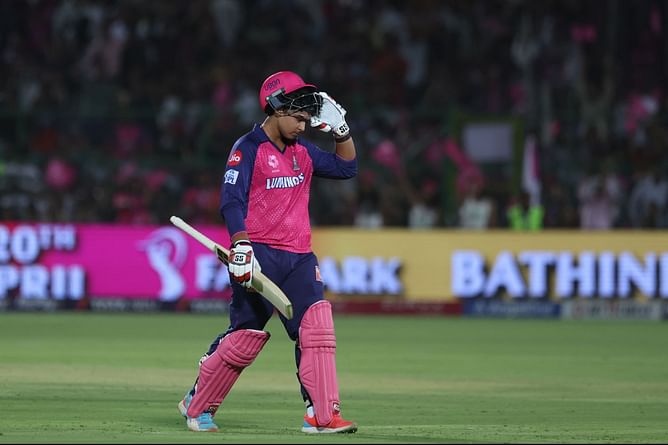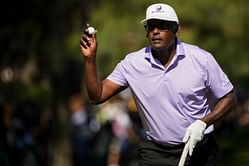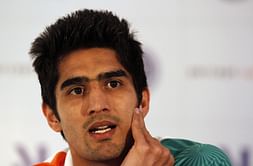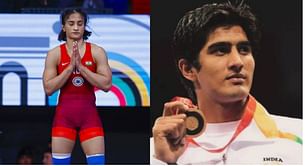Personal Information
| Date of Birth | October 29, 1985 |
| Age | 39 Years |
Vijender Singh: A Brief Biography
Vijender Singh Beniwal is Indian boxer who is well known as the first India boxer to win an Olympic medal, a feat he achieved in Beijing four years ago when he made a semifinal finish for a bronze medal.
He started boxing after getting inspired by his elder brother Manoj, who was a former boxer himself. Manoj was a relatively successful boxer and was able to enter the Indian Army on the basis of boxing credentials, from here he opted to support his younger brother and his practice. Vijender was quickly recognized as a special talent and moved up the ranks rapidly.
He trained at the popular Bhiwani Boxing Club and the first accolade for him came when he won his first match at a state-level competition. He would then go on to win silver in his first sub-junior nationals in 1997 and then his first-ever gold medal at the 2000 Nationals. Three years later, he became the all-India Youth champion. However, the turning point in his career came when he took part in the 2003 Afro-Asian Games. Despite the fact that he was a junior boxer, he participated in the trials and was eventually picked for the event, where he went on to win silver.
Vijender showed raw talent at a very young age and went through a refining process at the Bhiwani Boxing Club where he was coached by the Indian Boxing Coach Gurbaksh Singh Sandhu in professional boxing. Having won medals in different competitions at the national level, Vijender was picked to train and compete at several international level competitions such as the 2004 Athens Summer Olympics and the 2006 Commonwealth Games.
His moment of glory came when he was awarded a bronze medal at the 2006 Asian Games in Doha. Beijing Summer Olympics in 2008 was the highlight of his career - his first ever Olympic bronze medal. He kicked off his campaign against Gambia\'s Badou Jack in the Round of 32, whom he overcame comfortably with a 13-2 margin.
Up next was Thailand\'s Angkhan Chomphuphuang in the pre-quarterfinals and Vijender recorded another fine victory with an emphatic margin. He defeated his opponent 13-3 and as a result, entered the quarters of the Middleweight category. In the next round, he faced Carlos Gongora, a southpaw, from Ecuador. A win would have guaranteed him a historic medal and he responded in fine fashion, winning 9-4 and thus securing India\'s first-ever podium finish in boxing.
In the semifinal, he was up against Cuba\'s Emilio Correa. He fought valiantly but could not overcome his illustrious opponent and lost 5-8. He, along with Abhinav Bindra and Sushil Kumar, was India\'s sole medalist with the other two picking up a gold and bronze respectively. In September 2009, the International Boxing Association (AIBA) declared the Indian as the top-ranked boxer in the annual middle-weight (75 kg) category list as Vijender topped the charts with a total of 2800 points to his name.
In 2009, Vijender was felicitated with the Rajiv Gandhi Khel Ratna award. Following his Olympic accomplishment, Vijender picked up a bronze at the 2009 World Amateur Boxing Championships, a silver at the 2010 Commonwealth Games and a gold at the 2010 Asian Games. To top it all off, he was conferred with the Padma Shri title for outstanding contribution to Indian sports.
In 2012, he was embroiled in a serious controversy as the Punjab Police seized a large quantity of heroin and highly-valued drugs at a residence near Chandigarh. Additionally, a car registered in the name of Vijender\'s wife was also found outside the home of Anoop Singh Kahlon, a notorious drug dealer. A statement from the police even stated, \"As per investigation conducted so far, Vijender Singh consumed the drug about 12 times and Ram Singh (his sparring partner) about five times.\"
Vijender, however, refused to give any samples for testing. The National Anti-Doping Agency (NADA) also refused to conduct a test on the boxer as protocol did not permit them to test any athlete for a drug was may have been consumed outside of competition. later though, the NADA did conduct tests at the behest of higher authorities and give Vijender the \'all-clear\'.
He would later go on to take part in the London Olympics in 2012 as well in his quest for a second Olympic medal but was knocked out of the competition in the quarterfinals. He began with a hard-fought victory, where he defeated Kazakh boxer Danabek Suzhanov of Kazakhstan 14-10 in the first round. With this win, he entered the round of 16.
Another titanic battle was to follow against American pugilist Terrell Gausha, who was defeated by the narrowest of margins - a 16-15 win. In his next match, he was up against Uzbekistan\'s Abbos Atoev and this time around, it was another high scoring one but the India finished on the wrong side of it. The match ended 13-17 in favour of the Uzbek as Vijender came agonizingly close to his second Olympic medal.
Vijender\'s last major multi-event competition was the 2014 Commonwealth Games where he claimed a silver medal in the middleweight category. He opened his campaign against Andrew Kometa from Kiribati, who was easily defeated 3-0. The next round also saw another straightforward victory for the Indian as Mujanjae Kasuto of Namibia was beaten 3-0 straight over three rounds.
In the quarterfinals, it was another clean sheet for Vijender as he overcame Aaron Prince from Trinidad and Tobago. The semifinal was a similar affair as well as this time, it was Northern Irishman Connor Coyle who was dispatched. However, in the final, Vijender lost to Englishman Anthony Fowler 3-0 and had to suffice with a silver medal, his third medal at the CWG and second silver.
Vijender turned to professional boxing on 29th June 2015 and confirmed himself out of the 2016 Summer Olympics in Rio. He signed a multi-year deal with Frank Warren\'s Queensberry Promotions and fought his first pro-boxing match against Sonny Whiting of Great Britain on 10th October 2015. Vijender won the bout by TKO and made a successful start to his new career.
On 7th November later that year, he took on Dean Gillen of Great Britain and knocked him out in the very first round at the National Stadium in Dublin. His third pro-boxing bout came at the Manchester Arena where he faced Bulgarian Samet Hysuneinov and won by TKO on 19th December, 2015.
He won his next fight again as he knocked out Hungary\'s Alexander Horvath in round 3 of their match in Liverpool. A fifth round triumph over France\'s Matiouze Royer was next for the Olympic bronze medalist as he took his tally to 5-0 in a remarkable beginning to life in professional boxing. A win over Poland\'s Andrej Soldra solidified Vijender as one of the top performers in his weight class within less than a year and winning a major championship was all that was needed to cement him as one of the best.
Vijender captured the belt in historic fashion as he went 7-0 in his native India on 7th July 2016 in a bout against Kerry Hope of Australia. The vacant WBO Asia Pacific Super Middleweight championship was officially around the waist of India\'s Vijender Singh following his TKO victory over Hope by way of unanimous decision. With the championship victory, WBO announced that Singh had now reached 10th spot in the overall rankings.
The Thyagaraj Stadium in New Delhi oversaw another heroic achievement and was the host yet again on 17th December 2016 as the Indian boxer made his first ever title defense in front of his home fans in New Delhi. The fight, against Tanzania\'s Francis Cheka, was advertised as one of the toughest matches for him yet and managed an average of 60 million viewers. An attendance of 15000 live in the stadium witnessed Vijender win by TKO in round 3 of the biggest fight of his career and he hence retained his WBO Asia Pacific Super Middleweight Championship crown. The victory took his numbers to an impressive 8-0 overall with 7 of those wins coming by either KO or TKO.
Following the win, WBO confirmed in June 2017 that a unification match would take place in India between the two biggest names of Asia namely Vijender Singh and Zulpikar Maimaitiali. The fight is being billed as \"Battleground Asia\" and will be for the WBO Asia Pacific Super Middleweight Championship and the WBO Oriental Super Middleweight Championship, the latter being held by China\'s Maimaitiali. The match is scheduled to commence on 5th August 2017 at the Sardar Vallabhai Patel Indoor Stadium in Mumbai and is expected to bring in even bigger numbers than Vijender\'s previous fight. The fight for the ages will be Vijender\'s chance to win more gold and take his professional record to 9-0.

![[Exclusive] "Even I cannot tell who's winning" - Vijender Singh's coach believes the scoring system in boxing needs an overhaul](https://staticg.sportskeeda.com/editor/2025/03/2579e-17434191399303-1920.jpg?h=166)


